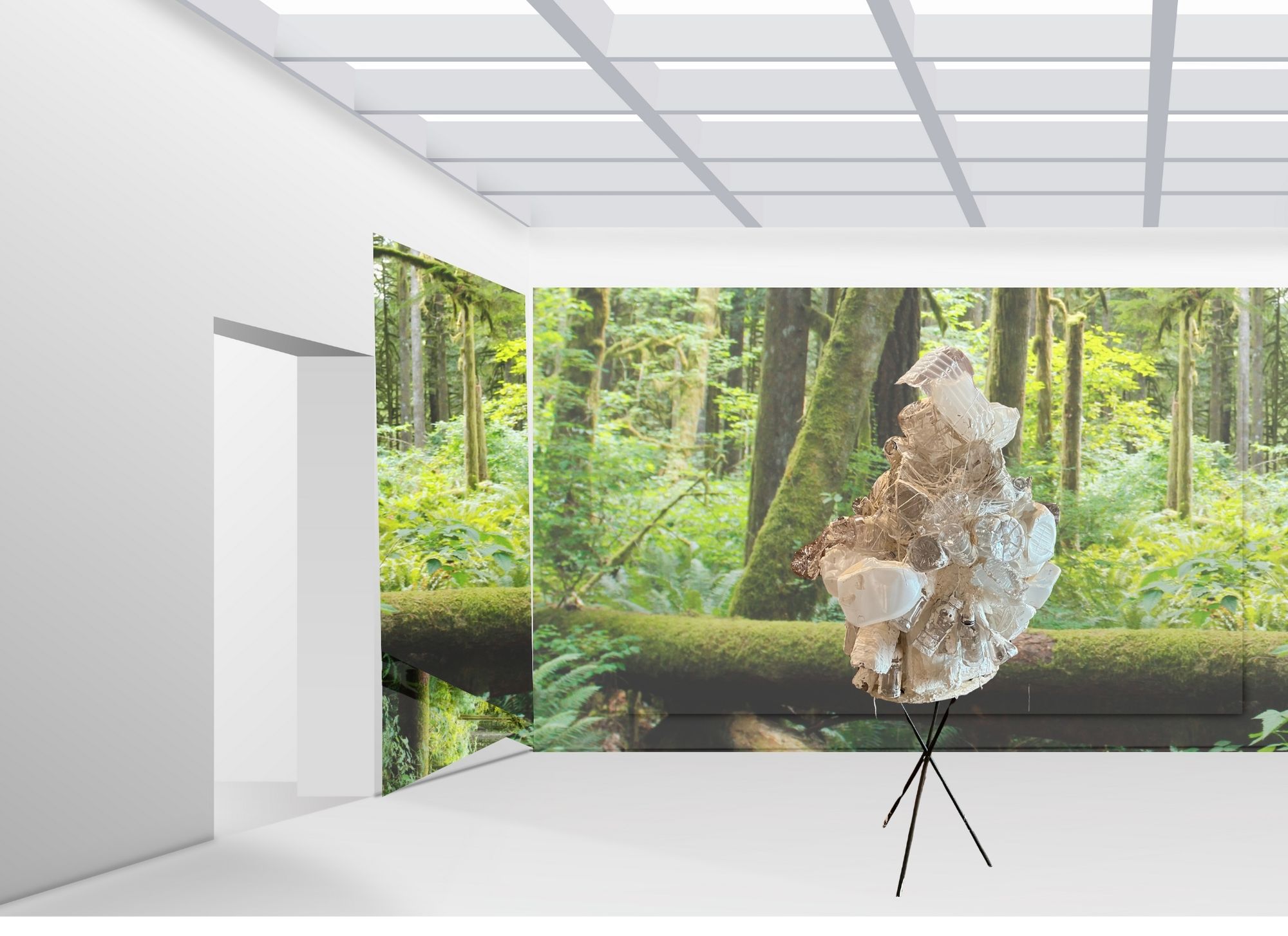PLASTIC BODIES: POETICS OF MATERIALITY IN THE EXPANDED FIELD OF SEX ECOLOGIES
My work explores gender, body politics, and materiality within the field of sex ecologies. Inspired by the Mono-Ha movement and sex ecologies, I engage deeply with materials to create art that examines our complex relationships with matter and otherness, responding to radical industrialization and extractive industry culture.
I work in collaboration with poets, artists, activists, biologists, and philosophers to discuss our environment, gender, and relationships with material and matter. This includes examining the impacts of policies that exploit or protect bodies—whether human, water, or more-than-human, both globally and on a micro-scale within the Southern and Appalachian regions where many of my collaborators and I reside, work, and were born.
The exhibition I curated, Sex Ecologies: Becoming Plastic, expanded on my graduate work, examining the impacts of capitalism, colonialism, industrialization, and hegemonic systems on marginalized bodies. Held at Stoveworks Gallery in May 2023, it featured works by five local artists, and three poets, and included dialogues with local biologists, conservationists, and activists.
My work reimagines our relationships with the climate, the earth, and plastics, challenging societal norms imposed on marginalized bodies. I aim to foster relationality, provoke critical discourse, and explore the “otherness” of material meanings, reflecting on my own gender experience and contributing to the ongoing ecological dialogue and efforts towards sustainable and symbiotic relationships.
The Tennessee River, where I live and where this project began, is one of the most plastic-polluted rivers in the world, dumping 32 million microplastic particles into the Ohio River every second. The 2008 coal ash spill, the largest in U.S. history, further devastated this region. The Tennessee Valley Authority continues to store coal ash in unlined pits, leaching heavy metals into groundwater and the river. This has had a profound impact on the environment and local communities, with over thirty cleanup workers dying from related illnesses.
In Spring 2023, I visited the Tennessee Aquarium Conservation Institute with three collaborating artists. We met with Dr. Anna George, VP of Conservation Science and Education, to learn more about our local waters. Dr. George shared and expanded upon research conducted in partnership with other scientists and that of Dr. Andreas Fath, a German scientist who swam the 652-mile length of the Tennessee River in 2017. Their findings revealed that the river contained 16,000 to 18,000 particles of microplastics per cubic meter, levels significantly higher than in China’s Yangtze River and Germany’s Rhine River.
“Sex ecologies considers sustainability as inseparable from social and environmental justice for building more equitable worlds. It questions compulsive heterosexuality, structural racism, and ongoing colonialism, countering it with waywardness, polyamory, interspecies care, and song.”
— Stefanie Hessler
“Doing Time in a Disposable Body.”
— David Wojnarowicz
